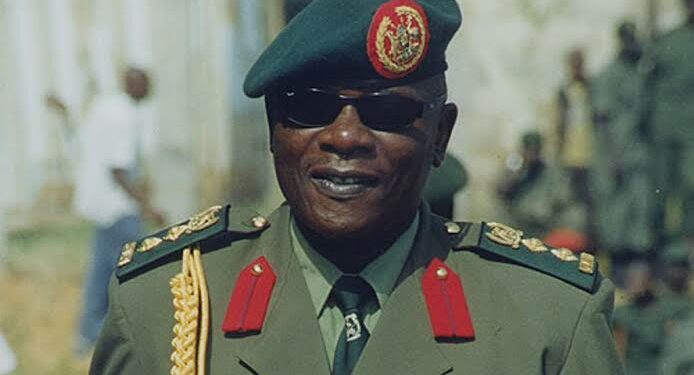When Kampala City was governed by the Kampala City Council twenty-two years ago, it was far from secure. There were pickpockets everywhere, and criminal groups had taken over areas, much like American mobsters owned streets.
Even for commuters, there was a serious safety concern. When taking a cab, there was a significant chance of being robbed and murdered because some of the drivers were known to the authorities.
At night, the city centre became a death trap. Only those with connections to the heads of these criminal gangs could navigate the city safely, either by paying off the gangs or informing them about newly stocked traders.
For unsuspecting urbanites, the friendly greeting at the taxi stand frequently meant that their baggage would be immediately taken, leaving them helpless. Only victims whose damages were caused by drivers or conductors could receive assistance from the once-powerful Uganda Taxi Operators and Drivers Association (UTODA).
The Kampala City Council (KCC) was primarily concerned with keeping the city tidy and making sure that traders and other business owners paid their taxes. But they were powerless to alleviate the acute insecurity that afflicted the streets, taxi and bus parks, arcades, marketplaces, and ghettos—hotspots for mafia activities.
The police knew full well what was going on, but many hard-core criminals had officers working for them, and some real cops were afraid for their lives as Kampala threatened to turn into another Bogotá. From the city centre to the most remote suburbs, gangs ruled the streets, and kidnappings for ransom had already started.
The Violent Crime Crack Unit (VCCU) was a beacon of hope that appeared in 2002. Its goal was to bring light to Kampala, which was perceived by the average Ugandan as a necessary evil in order to purify the city. While the majority of Ugandans may not be familiar with the name VCCU, they were much more familiar with its codename, “Operation Wembley”.
In an effort to combat the organised crime that was severely crippling Kampala, Operation Wembley was launched by Maj Gen. Elly Kayanja, whose notoriety increased as a result of his involvement in this endeavour, headed the operation.
Studies show that akin to the USSR’s destabilisation using a variety of tactics, Gen. Kayanja enlisted and trained young boys who knew where the hardened criminals who had terrorised Kampala were hiding and what they were up to.
It is said that members of organised crime and terrorist groups operating in Kampala were located and destroyed by Operation Wembley agents, who also killed them without providing them with a fair trial in a criminal court. This operation, on the other hand, stopped organised crime and murders in the capital.
An April 3, 2011, news story from East Africa stated that the force, which operated under an extrajudicial “shoot to kill” authority, was made up of both active and reserve army officers. President Yoweri Museveni said that the “corrupt judiciary and police” had failed to curb crime to justify this.
In just three months, the once-feared Kampala became the safest city in East Africa. The word “Wembley” became synonymous with terror for criminals not only in Kampala but throughout the entire country, as the operation, after successfully cleaning the city, began targeting the rural bases to which these criminals had fled.
While I acknowledge the concerns of human rights activists that Operation Wembley violated numerous human rights, we must not forget the innocent Ugandans who lost their lives to these gangs. Therefore, I believe Operation Wembley was a necessary evil.
However, 22 years later, the terror of Operation Wembley no longer holds significance. Kampala is gradually reverting to the unsafe conditions of the 2000s, with numerous criminal acts occurring openly on the streets, even in front of street cameras.
Criminal gangs are steadily re-emerging, displaying a high level of confidence by trailing their victims to their homes. As Gen. Museveni remarked 22 years ago, the police are corrupt and unable to handle this situation. To crack down on this dangerous cancer that is consuming the city, Gen. Museveni may need to once again adopt a firm, decisive approach.
Research has shown that hardcore criminals who are arrested, sentenced, and serve their punishment often return more dangerously than before.
When high-profile individuals such as the late Assistant Inspector General of Police Andrew Felix Kaweesa, Ibrahim Abiriga, and Muhammad Kigundu were assassinated six years ago, the president ordered the installation of CCTV cameras as a measure to curb crime in the city and its suburbs.
However, evidence has shown that even with CCTV cameras, crime can escalate and criminals are rarely tracked down by the police. In contrast, back in 2002, Gen. Kayanja did not rely on CCTV cameras to crack down on gangs; instead, he worked closely with local people. This approach is currently difficult because the police are often not trusted, as many criminals have connections with some officers.
It’s time for the president to once again adopt a firm, decisive approach to clear the city before more lives are lost to the hungry and angry gangs that have terrorized Kampala and its suburbs. The reinstatement of Operation Wembley could indeed be the final solution to clear the city of its current woes!
Do you have a story in your community or an opinion to share with us: Email us at editorial@watchdoguganda.com










